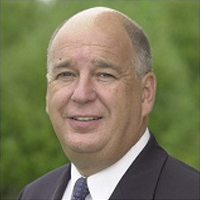My first thought about engaging with graduates on entry into the sector was that it would be easy; after all, graduates would be mature, focused, ambitious, career minded and able to articulate what they wanted from their working life and, as importantly, be able to articulate what they had to offer employers.<br/><br/>It took all of 30 minutes at my first graduate recruitment fair to have that illusion shattered. Graduates queued up to ask questions that only served to prove that they were pretty much clueless about the world of work and their place within it. Out of 100 graduates that I had conversations with I reckoned no more than a quarter really knew what they were talking about. The sad and frustrating thing about the experience was that the majority were bright, friendly and enthusiastic - they wanted to impress but simply did not know how to go about it.<br/><br/>Back then I'd never heard of the word "employability" but I left that fair determined to do my bit to improve prospects for graduates by encouraging universities to better prepare students for life beyond higher education. To be fair I quickly discovered some universities were ahead of me. I also identified a group of ambassadors for the employability agenda, most from an academic background (or did they find me?). <br/><br/>Since then, much has changed in the higher education landscape. I am constantly being asked to speak at conferences, to audiences drawn from universities, on employability from the employer's perspective - and not just in the UK! Driven by the need to justify the financial investment by students, few universities have yet to build employability skills into the student experience. Rather more academics have yet to be won over and an article in The Guardian this very week questions whether the time has come to get critical about employability. You could interpret this as academics fighting back. Are the academics fighting back?<br/><br/>Not wanting to get drawn into a debate on the true purpose of higher education here, I will instead refer to a presentation I heard a graduate recruiter make just a few days ago. He was relaying to an audience of careers advisers and employability co-ordinators the experience of reading through job applications from graduates. His experience matched mine (and many other recruiters). Basically He was saying that too many graduate job applicants do not know how to articulate what it is that they have gained from their life experience and what they can bring to the workplace. It reminds me of a quotation attributed to Aldous Huxley "Experience is not what happens to you; it's what you do with what happens to you." And that is what counts!<br/><br/>How tragic when someone who has spent 13 years in school and three years at university is unable to demonstrate on an application form or in an interview the added value that their educational and extra curricular experiences can bring to a business. Surely universities have some responsibility to equip their students with the ability to make themselves employable? The graduates who can demonstrate this ability and make the most of their experience are the ones who will succeed in winning the competition for the best jobs.




